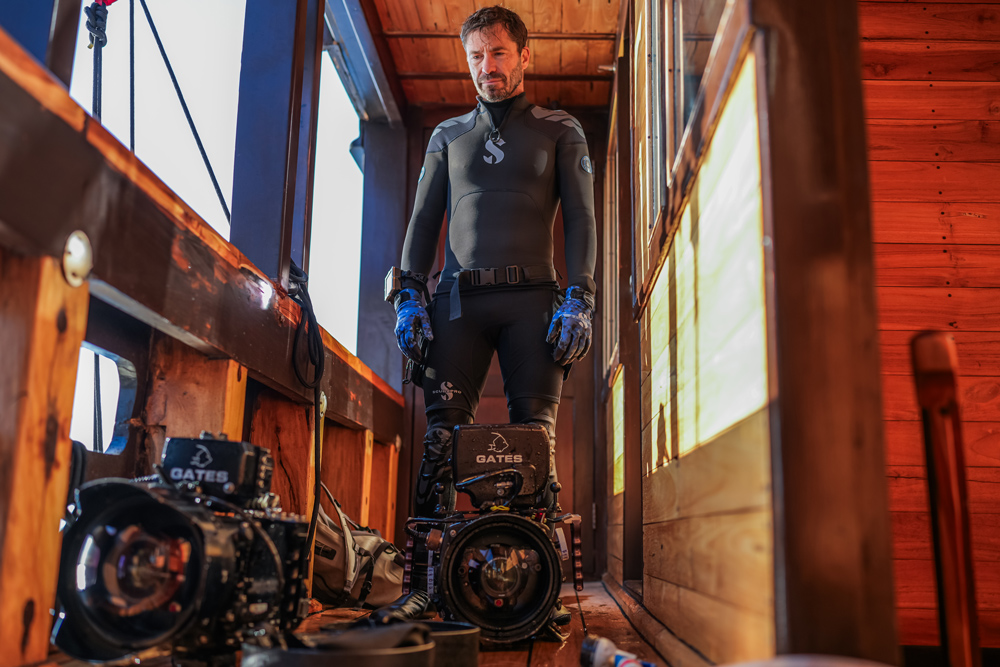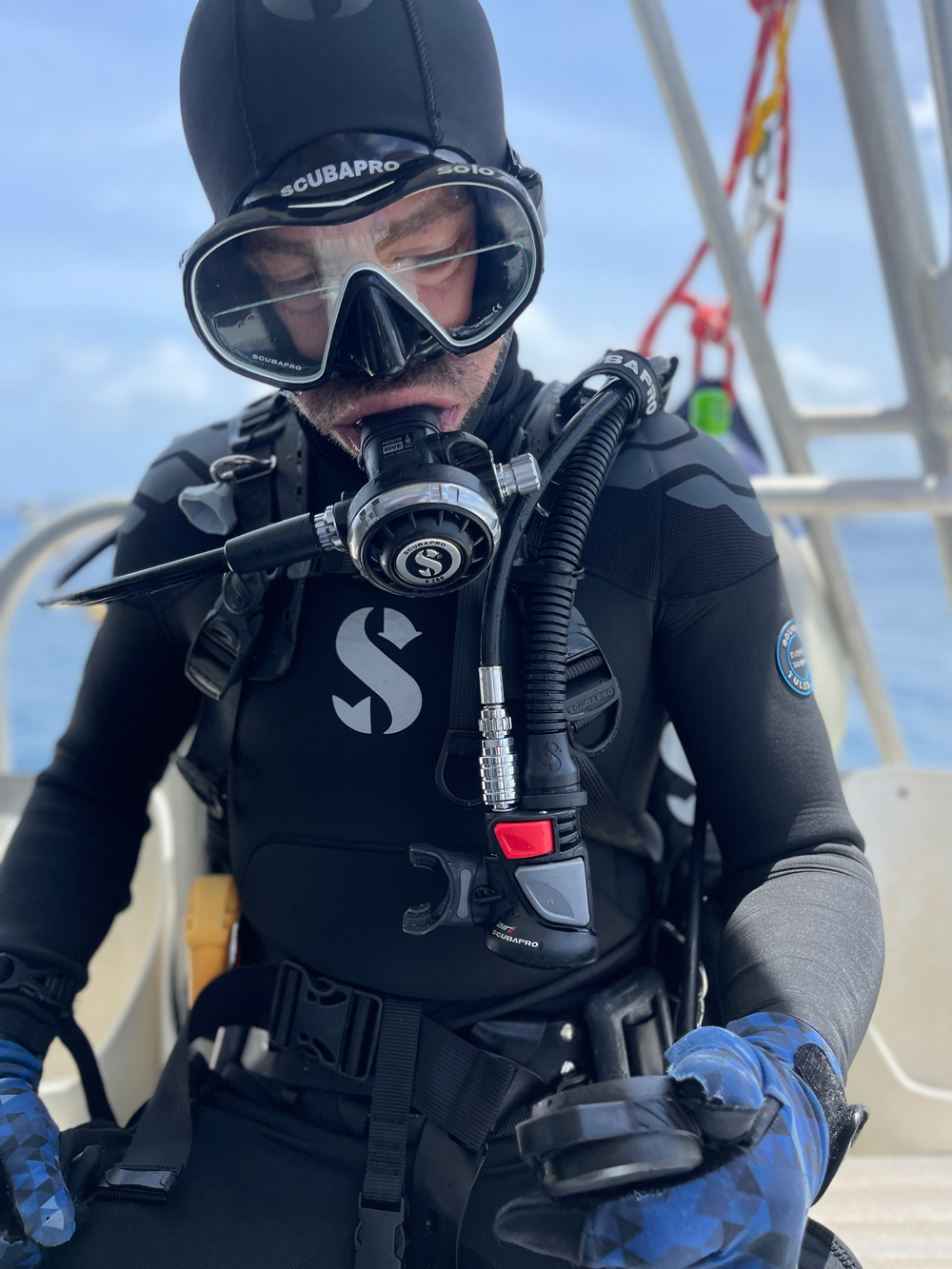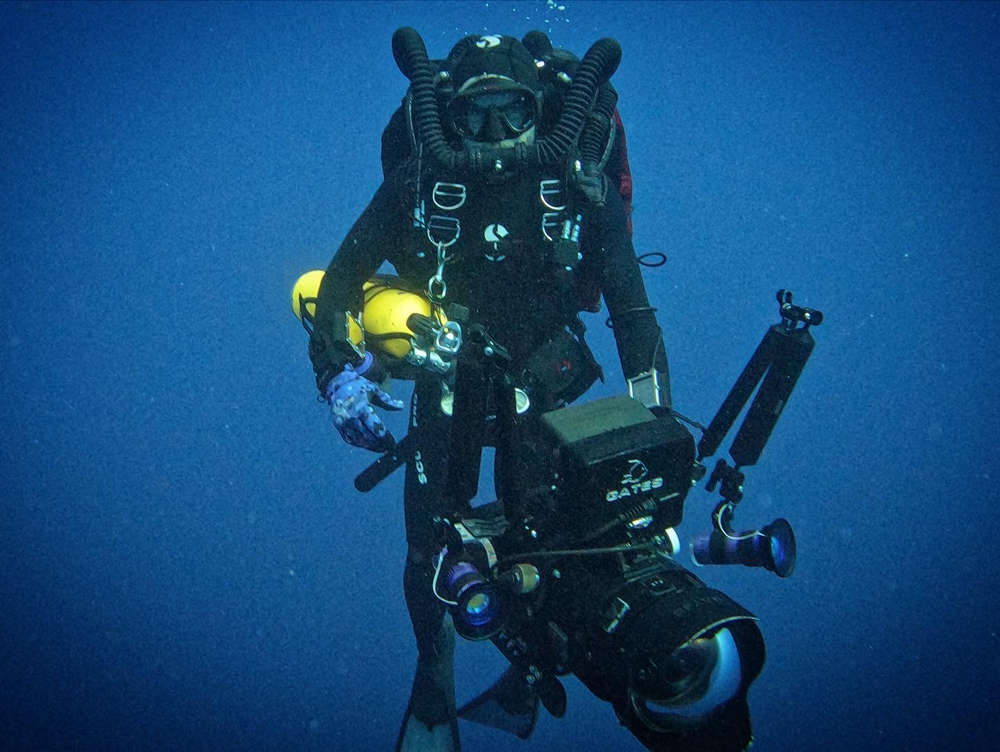
Global Dive Team - David Reichert
David Reichert
Location: Manhattan Beach, California
Occupation: Director of Photography
Scuba Diving Since: 1982
Favorite Local Dive: The kelp forest at San Clemente island
Favorite Dive Location: South Africa - Sardine Run

About David Reichert
David Reichert –Director of Photography
David Reichert was born and raised in Boulder, Colorado where he spent his youth alpine ski racing, white water kayaking, and scuba diving. He attended the College of Idaho on an alpine skiing scholarship where he earned degrees in physics and mathematics. After he graduating he moved to Jackson, Wyoming where he stumbled into a job as a camera assistant on the BBC’s Blue Planet. He worked over the next five years to earn the title of cameraman. From there he has made his career as a director of photography specializing in underwater work. David has been nominated for ten Emmys for cinematography and won four. He has also won a BAFTA for cinematography as well as best cinematography from the Paris Film festival, Wildscreen Film Festival, Blue Ocean Film Festival, and Japan Wildlife Film Festival. He now lives in Los Angeles and is currently working on natural history series for the BBC and is the director of photography for the Discovery Channel series “Deadliest Catch”.
An Interview with David Reichert
Why did you decide to take the giant stride into the oceans?
As a kid I loved the water. When I was 8-years old we were swimming in a lake when my uncle handed me a 3 liter tank with only a regulator (no backpack). I disappeared underwater until it was empty. My parents decided then that I need to be certified so when I turned eleven the whole family took the open water course and went to Mexico for a diving vacation. And after that every winter we had a family diving vacation and I was hooked.
How has diving changed your life?
As an underwater director of photography diving is my job. I have spent the last 30-years traveling the world filming underwater stories. I feel incredibly lucky to have a job that is exciting and challenging. Diving makes that possible.
What kind of diving do you like to do?
I like all types of diving - from working with leopard seals in the Antarctic to nesting sergeant majors in the Caribbean. I find each location and animal we film reveals a word that is so different than what we see and know as humans yet is as complex and interesting.

Tell us about one of the most amazing experiences you have had underwater?
In 1988 Howard Hall and Bob Cranston got couple shots of blue whales feeding off of California, which were the only underwater pictures of them, besides a few fleeting tail shots, that existed. Then in 2003 I was asked to film blue whales for Galatee Film’s feature film “Oceans” (for Disney Nature). I spent 8-weeks without getting a single shot. Finally on the 58th day we got an perfect shot of a blue whale swimming by. It was insane to be within a few feet of such a massive creature. Over the next few weeks I was able to film a complete feeding sequence of the blue whales, which still today the most complete blue whale sequences.
Where are some of your favorite places underwater?
I love diving in Indonesia, Azores, South Africa, Antarctica, and California.
What is your advice to someone considering diving?
Come and see the other two-thirds of the planet.
What would you tell people about the oceans?
The oceans are a vast expanse of mystery and stories that we have only started to uncover. The more time I spend underwater the more time I want to spend underwater.

What does diving mean to you?
Besides my family, diving is the most important thing in my life. As it is my job we depend on it for money, but also it allow me to have an amazing job
What's your favorite thing in your dive bag?
The favorite thing in my dive bag is my hybrid cargo shorts. Working underwater you always have something that you need a pocket for. The pockets in the cargo shorts are perfect to stash things yet you don’t even feel like you are wearing additional layers.
Follow David on Instagram




